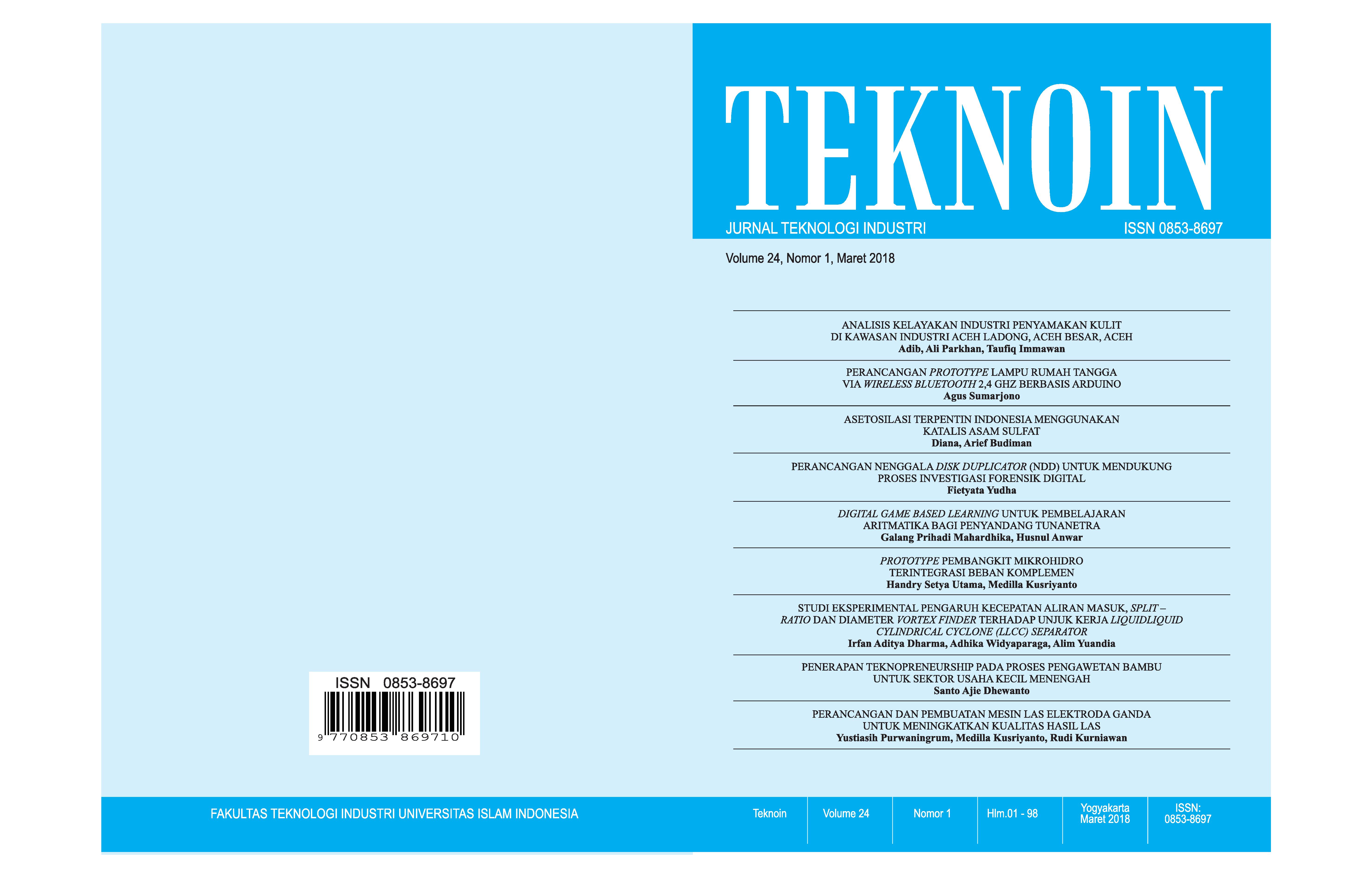Main Article Content
Abstract
Double Metal Arc Welding Gas Electrodes (DE-GMAW) is a new welding process that separates the melting current into a base metal current and a controlled current by adding a TIG torch to a conventional GMAW system to form an alternative path that will flow through the current. This makes it possible to reduce the current passing through the base metal, so that the heat input in the base metal can be controlled at the desired level. Research has been done to know the parameters for the welding process run stable between welding wire and torch TIG as current cutter. Parameters that affect the stability of the control system are Bypass Electrodes, Tungsten Distance to Welding Electrodes, Tungsten Distance to Workpieces, Torch GMAW Tube Distance to Workpieces, Angles between Tungsten and Welding Wires. To control the base metal current at the desired level, a group of power resistors is added in the control system. In this study, the welding is done using 18 V voltage by using several variations of the number of resistors. From the research shows that the control system developed can adjust the current cut in a large range to maintain the base metal current at the desired level. The welding results using the DE-GMAW control system show the physical properties of the weld result better when compared with welding without using current control system.
Article Details
License
Authors who publish with this journal agree to the following terms:
- Authors retain copyright and grant the journal right of first publication with the work simultaneously licensed under a Creative Commons Attribution License that allows others to share the work with an acknowledgement of the work's authorship and initial publication in this journal.
- Authors are able to enter into separate, additional contractual arrangements for the non-exclusive distribution of the journal's published version of the work (e.g., post it to an institutional repository or publish it in a book), with an acknowledgement of its initial publication in this journal.
- Authors are permitted and encouraged to post their work online (e.g., in institutional repositories or on their website) prior to and during the submission process, as it can lead to productive exchanges, as well as earlier and greater citation of published work (See The Effect of Open Access).
